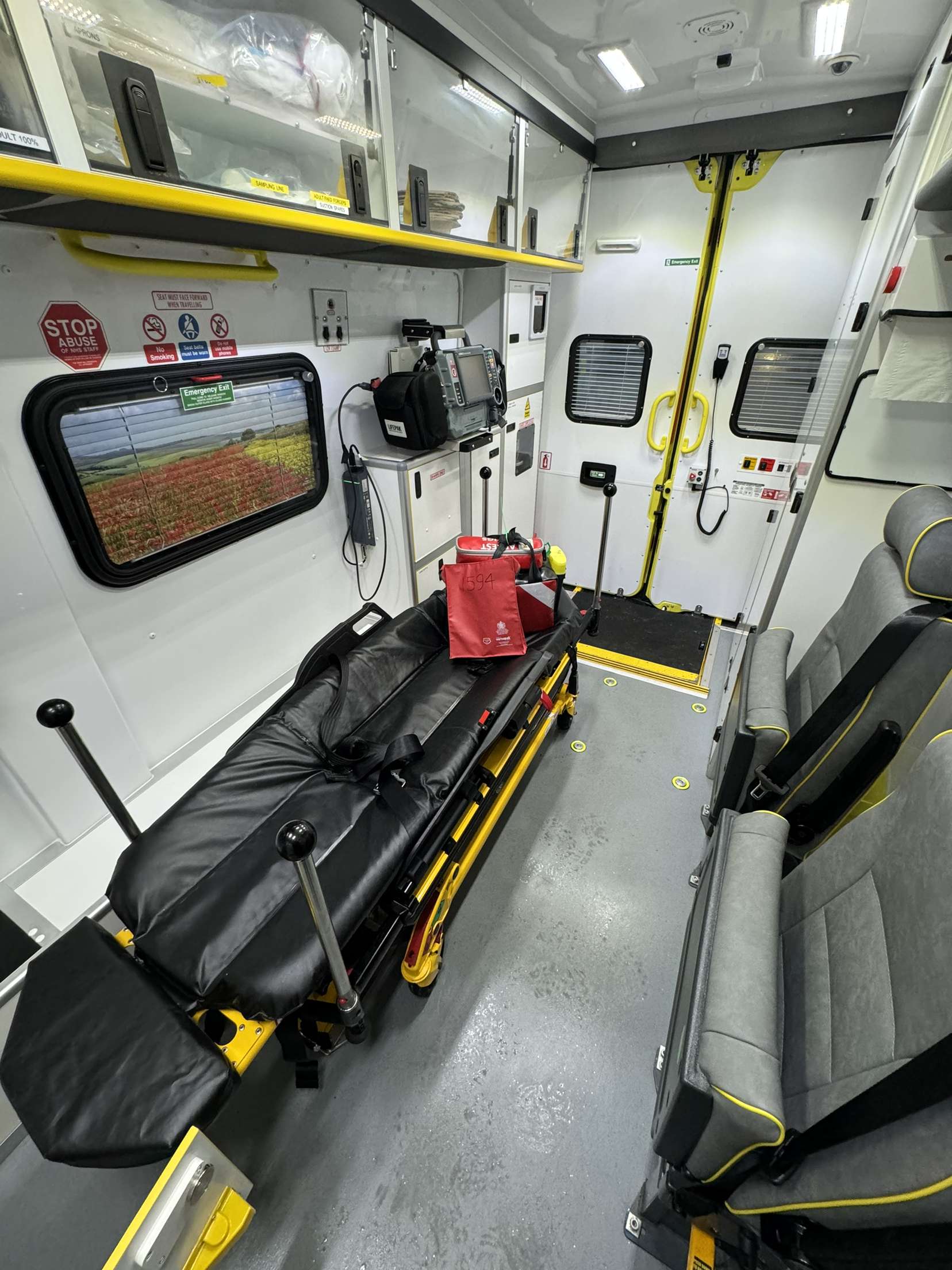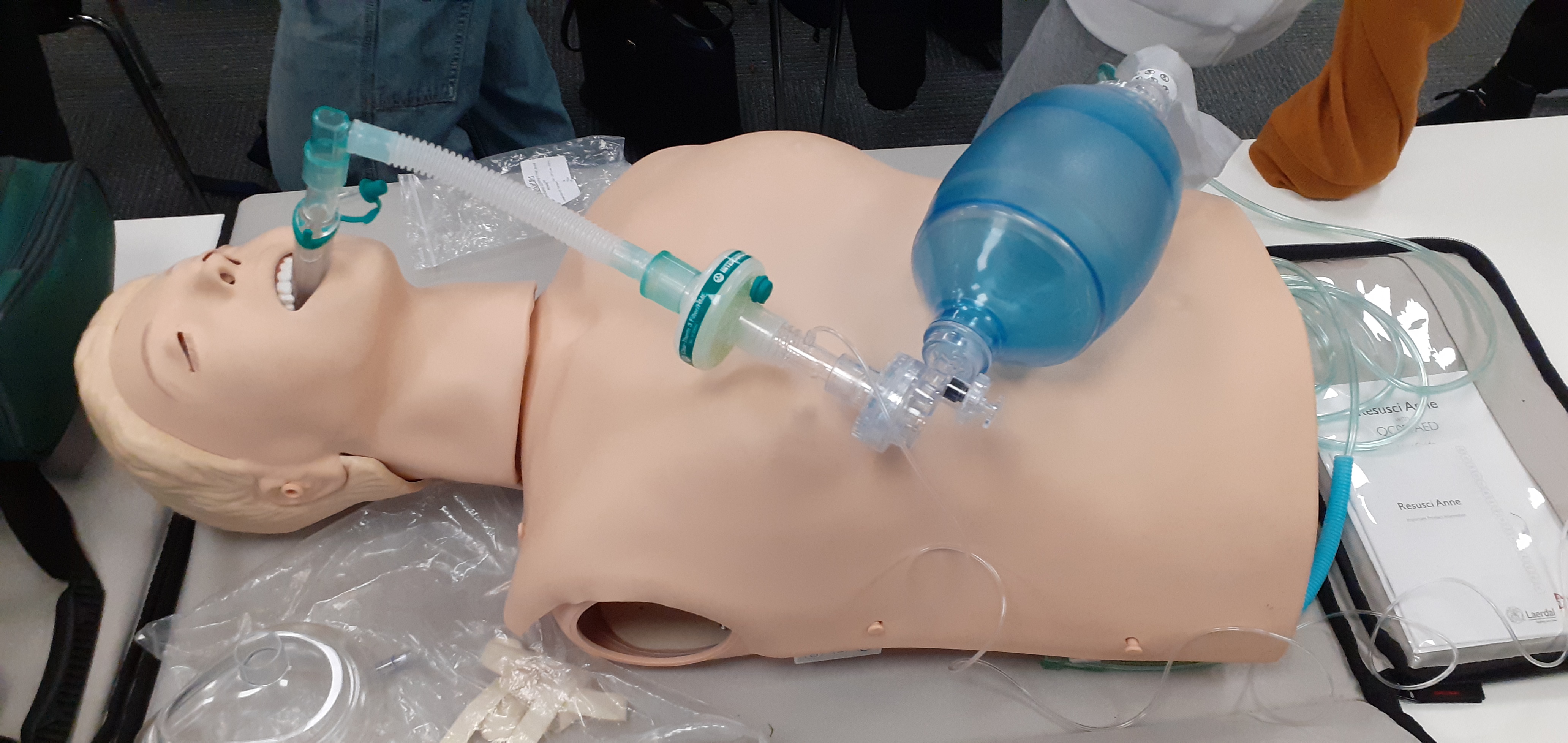Ranked 1st in the UK by the Complete University Guide and 4th in the UK in the Guardian University Guide 2024, the University of Surrey’s Paramedic Science course offers the chance to meet the diverse needs of patients, families and carers and gain the confidence to excel in this field. What’s more, 100% of the University’s health sciences students go on to employment of further study after graduation (Graduate Outcomes 2024, HESA).

Having In this blog, I have broken down this course into 4 words that I think define it best hopefully to help you understand what it entails a little bit more.
Multifaceted:
This degree encourages each student to become a complex and well-rounded health care professional. This course, unlike others, brings together various skills, including those that are both intellectual and practical. As paramedic students, we will work in various settings throughout our course, these include care homes, specialist hospital departments, A&E, primary care settings, labour and delivery, prisons and community teams. This course allows you to get a taste of various different specialisms whilst also generalising in the care of anyone who we might come across during our usual shifts on ambulances. With this course consisting of a minimum of 50% practical and 50% theory, there are various learning styles to suit everyone whilst allowing you to learn on the job from the very first year.

Unpredictable:
Due to the fact that our field is constantly changing and developing, it is undoubtedly unpredictable. The profession that you are working towards is one where each day and shift will be completely different from the last. As a result, this helps to maintain a constant level of excitement throughout the course and onwards into your career. This requires the ability to adapt to the unpredictability of each shift. Each patient we see and care for, will be different to the last with their own individual problems and concerns. Due to the layout and schedule of this course, which includes frequent placement and constant support, this is a skill that is always being developed throughout this degree. Sometimes, this unpredictability can be difficult and test your mental strength however this encourages you to be tested, grow and further develop the skills you have along with new ones. The mentors you will work with throughout your degree have helped me to learn about the unpredictability of this course, but also allow me to understand how it can help me to learn and how to adapt to this.
Rewarding:
Without a doubt, this degree is extremely rewarding. Although it is hard-work, the skills that you learn are invaluable and can be applied to both your personal and work life. These include confidence, organisation, communication, empathy, resilience, teamwork and leadership skills to name a few. So, these skills will not only help to form a qualified health care professional with the ability to aid people in their time of need, but also develop the individual themselves. The main reason I would describe this degree and work as rewarding would be because you get the opportunity to see impact of your work as you complete in, then and there. We are privileged to see and be trusted, to help people who are at their lowest and in need of help. Not only does this allow constant learning with the ability to adjust and adapt your practice, but it also provides you with the incentives and ,hopefully, reminders of why you have chosen this degree and the impact you can have.
Fun:
Finally, and most importantly, for all these reasons this course is fun! You get to meet people all aiming to achieve the same outcome, with a similar mindset and level of excitement. This degree is the same in the sense that it ends with the qualification needed to become a paramedic, however the journey, experiences and memories that each student paramedic has will completely differ from the next allowing space for you to make adjustments that will best suit yourself.
I hope this has helped to better understand the course and the characteristics it is able to provide.
Clinical placements
You’ll spend half of your training in clinical placements, allowing you to develop your knowledge, skills and practice within healthcare settings, under the supervision of qualified practitioners. You’ll complete 30 placement hours a week, for approximately 20 weeks in your first, second and third years of study.
Previous students have completed their placements in the NHS, with private healthcare organisations and with charities. These have been across several settings, including accident and emergency departments, ambulance stations and vehicles, hospital units (e.g. children’s, coronary care, maternity and mental health), minor injury centres, operating theatres and specialist ambulance services.
More information can be found on our Clinical placements page.
